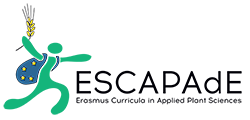English title:
Advanced light and chemical microscopy in life science
Course ID:
790014
ECTS credits:
3,0
Title in native language:
Advanced light and chemical microscopy in life science (in Eng.)
Advanced light and chemical microscopy in life science (in Eng.)
Term Semester:
Autumn/Winter
Instruction language(s):
English
Course content:
Basic Light Microscopy:
-) Types of microscopes (upright, inverse, stereomicroscope, macroscope)
-) Components of the visible light path
-) Contrast methods: Phase contrast, differential interference contrast (DIC), polarisation
-) Köhler illumination
-) Numerical aperture (NA)
-) Diffraction limit
-) Point spread function (PSF)
Fluorescence microscopy, immunocytochemistry and FISH:
-) Components of the fluorescence light path
-) Digital detectors and their applications
-) Basic principles of immunocytochemistry
-) Fixation techniques
-) Fluorescent dyes
-) Basic principles of FISH
Microscopy of thick specimen/imaging in 3D:
-) Confocal microscopy – spot scanning and spinning disk
-) Two-photon Microscopy
-) Deconvolution
-) Light-sheet microscopy
Life-cell imaging:
-) Life-cell imaging dyes
-) Fluorescent proteins
-) Photo-switchable fluorescent proteins
-) FRAP, FLIP and FRET
-) Phototoxicity
Super-resolution microscopy:
-) Going beyond the diffraction limit
-) Pointillist imaging: PALM and STORM
-) STED
-) SIM
Digital image processing and chemical microscopy:
-) Use of ImageJ for quantification of fluorescence intensities and particle counting
-) Deconvolution (using Huygens)
-) Raman microscopy
-) Types of microscopes (upright, inverse, stereomicroscope, macroscope)
-) Components of the visible light path
-) Contrast methods: Phase contrast, differential interference contrast (DIC), polarisation
-) Köhler illumination
-) Numerical aperture (NA)
-) Diffraction limit
-) Point spread function (PSF)
Fluorescence microscopy, immunocytochemistry and FISH:
-) Components of the fluorescence light path
-) Digital detectors and their applications
-) Basic principles of immunocytochemistry
-) Fixation techniques
-) Fluorescent dyes
-) Basic principles of FISH
Microscopy of thick specimen/imaging in 3D:
-) Confocal microscopy – spot scanning and spinning disk
-) Two-photon Microscopy
-) Deconvolution
-) Light-sheet microscopy
Life-cell imaging:
-) Life-cell imaging dyes
-) Fluorescent proteins
-) Photo-switchable fluorescent proteins
-) FRAP, FLIP and FRET
-) Phototoxicity
Super-resolution microscopy:
-) Going beyond the diffraction limit
-) Pointillist imaging: PALM and STORM
-) STED
-) SIM
Digital image processing and chemical microscopy:
-) Use of ImageJ for quantification of fluorescence intensities and particle counting
-) Deconvolution (using Huygens)
-) Raman microscopy
Expected previous knowledge:
Basic knowledge of cell biology is strongly recommended! This course is specifically recommended for PhD-students.
Learning outcomes:
Students will know the basic principles and applications of microscopy in life sciences and will have increasing confidence in handling basic light and fluorescent microscopes. They will be able to select the appropriate microscope and design an experiment including the proper controls for their individual application. Furthermore, students will be able to identify important aspects of the different techniques, critically interpret results and perform basic troubleshooting. They will understand the basic principles and applications of more advanced microscopical techniques and thereby have the confidence to gain a deeper understanding by consulting the relevant literature on their own.
Teaching and learning methods:
10 (interactive) plenary online lectures via Zoom with quizzes in breakout groups, 2 practical sessions in the imaging facility in groups of 5 participants.
UPDATE 02.11.2020: Due to the new COVID-19 recommendations, we decided to replace the two practical sessions in the imaging facility with additional online lectures/tasks.
UPDATE 02.11.2020: Due to the new COVID-19 recommendations, we decided to replace the two practical sessions in the imaging facility with additional online lectures/tasks.
Exam method:
Active participation in online lectures and practical demonstrations (continuous assessment). Participation in 10 of the 12 lectures/online tasks (as assessed by the quiz) is required to complete the course.
Organisation: University of Natural Resources and Life Sciences Vienna
Country:
Austria
Acronym:
BOKU
ERASMUS+ code:
A WIEN03
Teaching period summer semester:
22. Feb 2021 - 30. Sep 2021
Teaching period winter semester:
13. Oct 2020 - 21. Feb 2021
University website:
